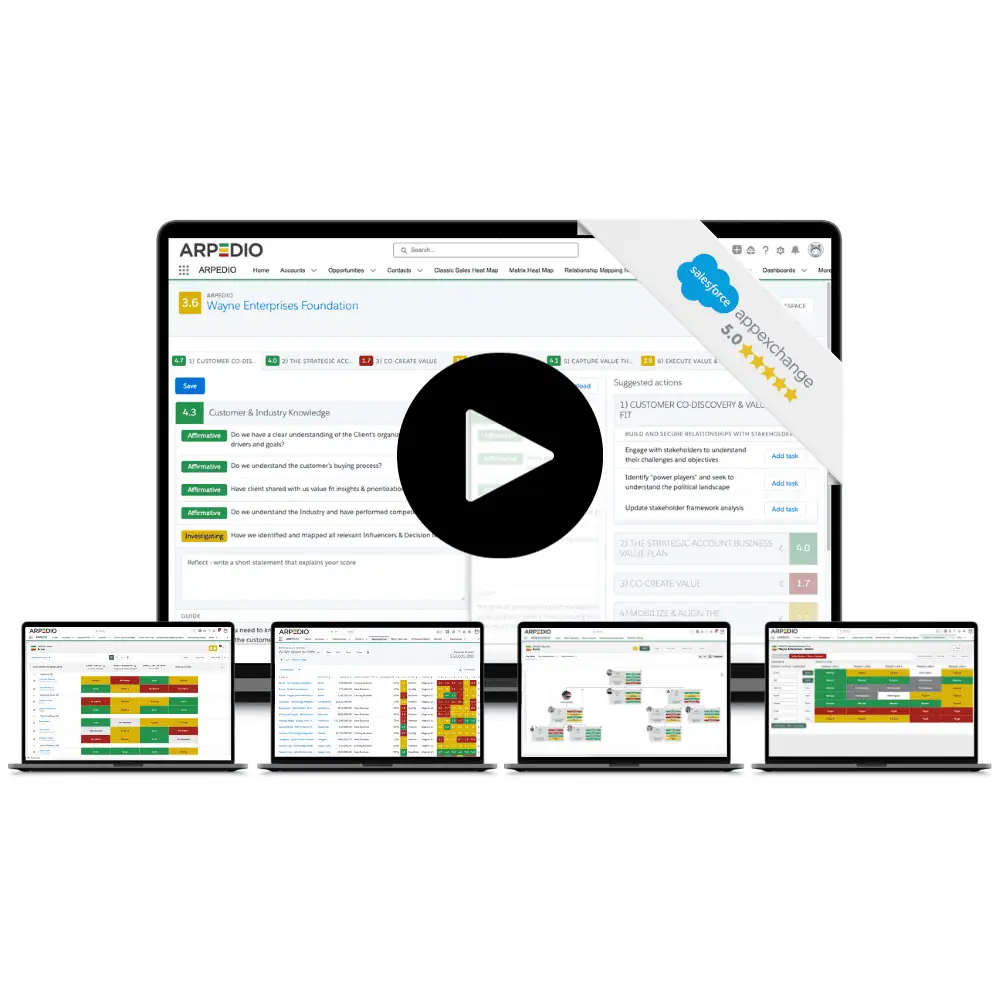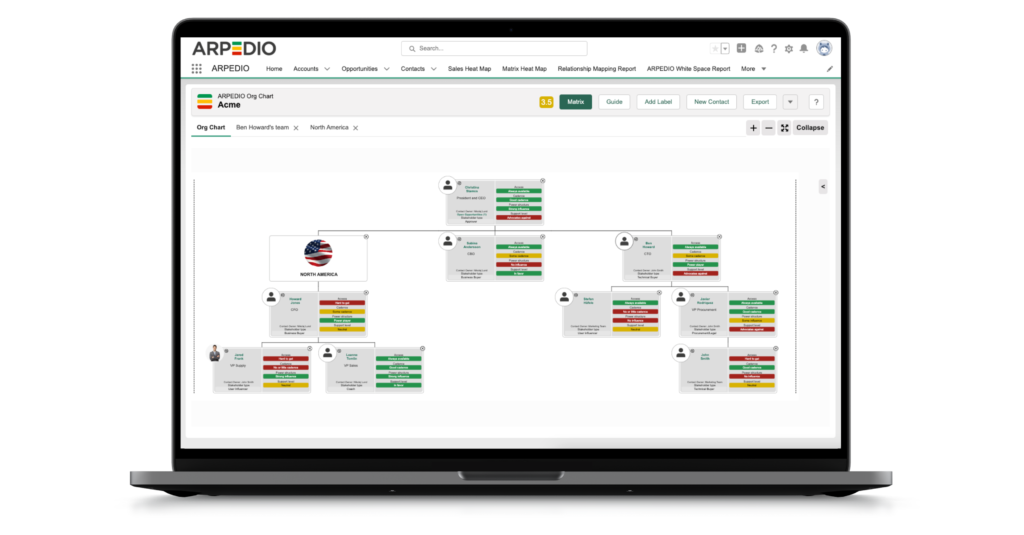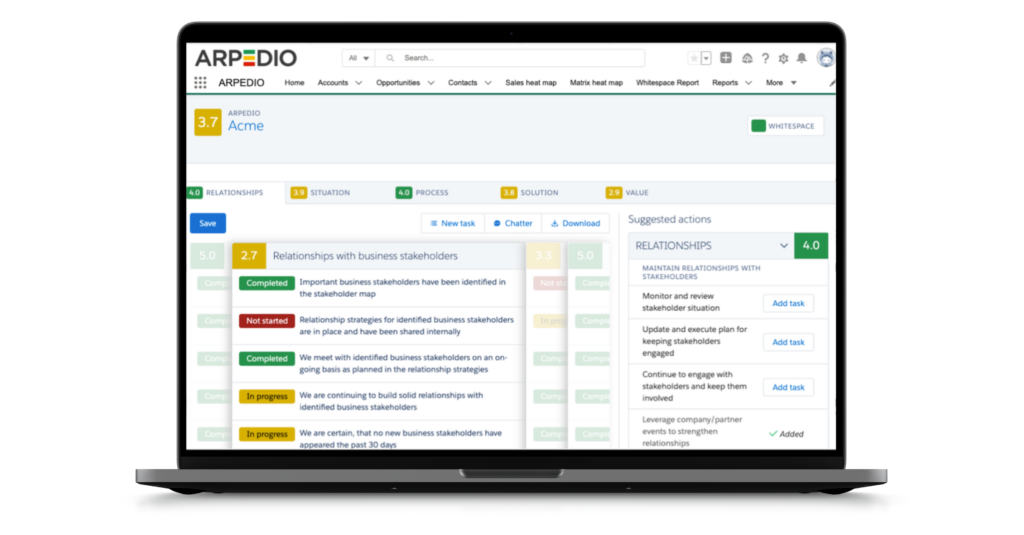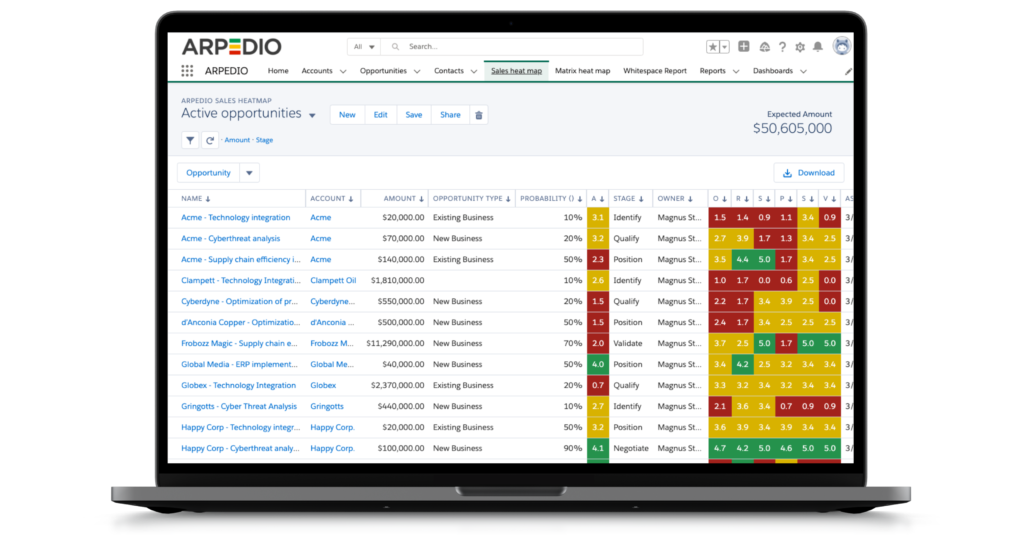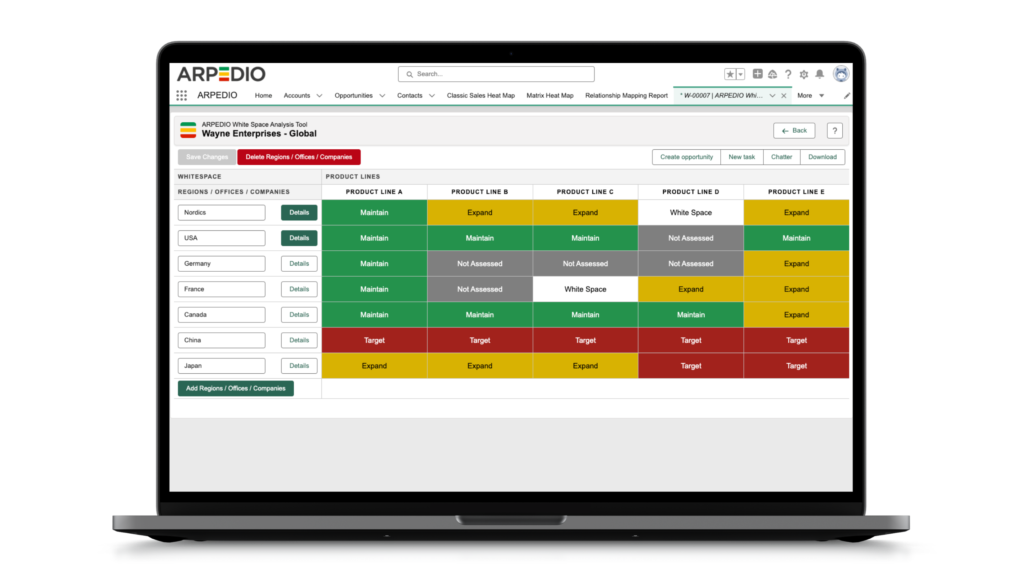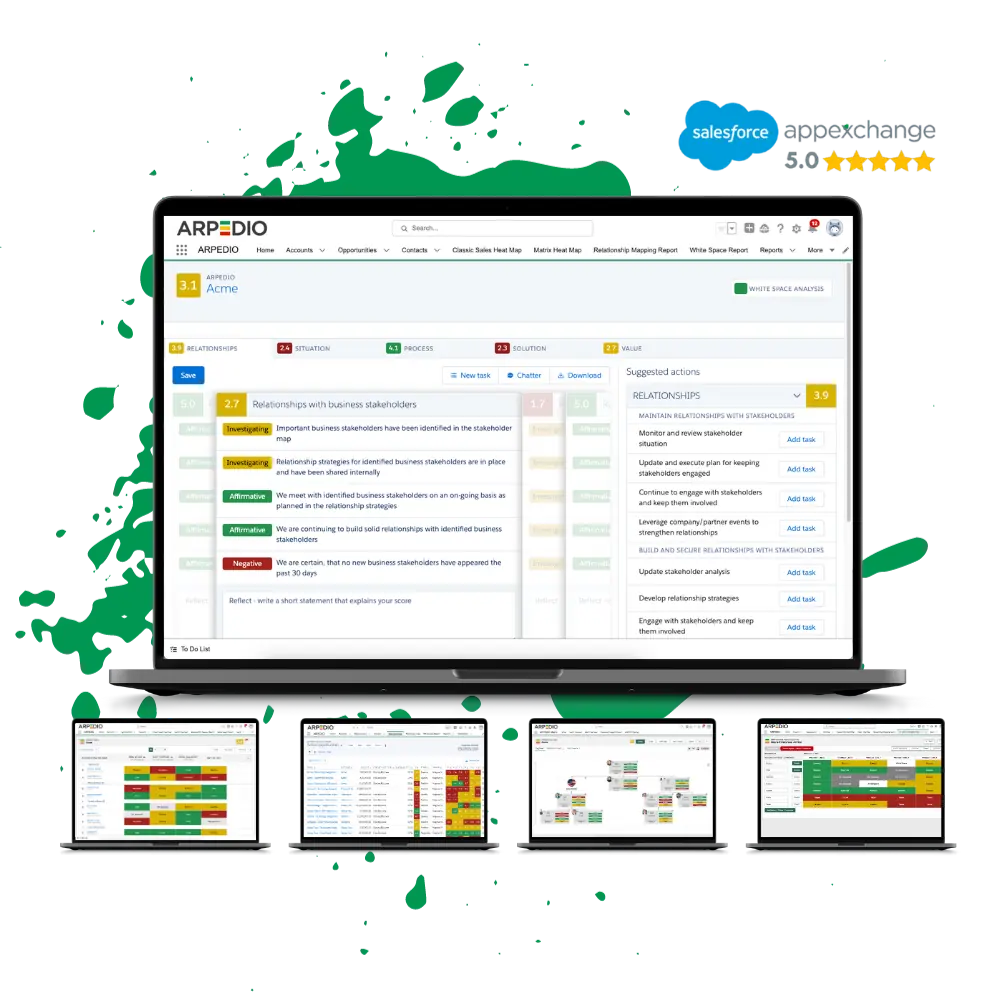In today’s fast-paced business landscape, sales teams face numerous challenges in managing accounts, seizing opportunities, and nurturing relationships with stakeholders. Enter sales automation software—a transformative solution that empowers sales professionals to streamline their workflows, enhance efficiency, and achieve greater sales success. This blog post explores the world of sales automation software, delving into its definition, benefits, and its pivotal role in elevating account management workflows.
Table of Contents
An introduction to sales automation software
In an era where efficiency and productivity reign supreme, businesses across all industries are embracing the power of automation. Sales, a pivotal function in any organization, is no exception. The modern sales landscape demands speed, precision, and the ability to seize opportunities swiftly. This is precisely where sales automation steps in, revolutionizing the way sales teams operate.
Imagine a world where your sales representatives are liberated from the shackles of repetitive tasks, freeing up their time and energy to focus on what truly matters – building relationships and closing deals. Sales automation tools are the catalysts of this transformation, and in the following, we’ll embark on a journey to explore their remarkable potential.
In this comprehensive guide, we’ll unravel the world of sales automation, from understanding what these tools are and how they can benefit your business, to essential considerations when choosing the right ones. We’ll also introduce you to a curated list of top-notch sales automation tools that have been driving success stories across industries. However, like any technological advancement, sales automation is not without its challenges, and we’ll candidly discuss its disadvantages.
So, fasten your seatbelts, as we embark on a captivating exploration of sales automation tools, their impact, and how they are reshaping the future of sales. Let’s dive in!
What is sales automation software?
Imagine a bustling sales department in a fast-paced business environment. Phone lines are ringing, emails are flooding in, and your sales team is juggling a multitude of tasks to nurture leads, close deals, and keep customers satisfied. It’s a whirlwind of activity, and amidst this chaos, time management becomes crucial.
This is where sales automation software steps in as a game-changer, revolutionizing the way businesses manage their sales processes. But what exactly is sales automation software, and why has it become an indispensable tool for modern sales teams?
At its core, sales automation software is a digital solution designed to streamline and simplify the myriad tasks that make up the sales process. It empowers sales professionals by automating repetitive and time-consuming activities, allowing them to focus on what they do best – building relationships and driving revenue.
Picture this: Instead of spending hours manually entering data, sending follow-up emails, and scheduling appointments, your sales team can let the software take care of these routine tasks. It’s like having a virtual assistant that works tirelessly in the background, ensuring that no lead falls through the cracks and no opportunity is missed.
Sales automation software is much more than just a productivity tool; it’s a comprehensive system that can be tailored to the unique needs of your business. From managing leads and tracking interactions to sending personalized email campaigns and generating reports, it covers every aspect of the sales cycle.
In essence, sales automation software is the digital backbone of a modern sales operation. It harnesses the power of technology to increase efficiency, improve accuracy, and boost the overall effectiveness of your sales team–exactly what ARPEDIO is here to do. It’s not about replacing human interaction but enhancing it, allowing your sales professionals to focus on building meaningful connections with customers and prospects.
As we delve deeper into the world of sales automation software, we’ll explore how it works, its key features, and the tangible benefits it brings to businesses. So, buckle up as we embark on a journey through the exciting realm of sales automation, where innovation meets the art of selling.
What are the benefits of sales automation software?
The adoption of sales automation software is not merely a matter of convenience; it’s a strategic move that can revolutionize the way businesses approach sales. In this chapter, we explore the profound benefits that this technology brings to the table.
1. Increased efficiency
One of the most immediate and impactful advantages of sales automation is the boost in efficiency. By automating repetitive tasks such as data entry, lead nurturing, and appointment scheduling, your sales team can reclaim valuable hours in their workday. This newfound efficiency translates into more time spent on high-value activities, like building relationships with prospects and clients.
2. Enhanced lead management
Sales automation software provides a systematic and organized approach to lead management. It ensures that every lead is tracked, engaged, and progressed through the sales funnel methodically. This reduces the likelihood of leads falling through the cracks and increases the chances of conversion.
3. Personalization at scale
Personalization is key to engaging today’s consumers. Sales automation software allows you to send personalized emails, tailored content, and targeted offers to leads and customers on a large scale. This personal touch fosters stronger connections and increases the likelihood of conversions.
4. Improved customer insights
The software collects and analyzes data at every touchpoint of the sales journey, creating a foundation for the future integration of Artificial Intelligence (AI). This wealth of information provides invaluable insights into customer behavior, preferences, and pain points. Armed with these insights, your sales team can tailor their approach, anticipate needs, and deliver a more personalized experience.
5. Consistency in sales processes
Sales automation ensures that your sales processes are consistently followed, regardless of the size of your team or the complexity of your sales funnel. This consistency leads to better forecasting, more accurate reporting, and a higher level of accountability among team members.
6. Better communication
Automated email sequences and reminders ensure that your team communicates with leads and customers at the right time. No longer will important follow-ups or appointments be missed. This timely and relevant communication strengthens relationships and builds trust.
7. Scalability
As your business grows, so can your sales automation system. It scales with your needs, accommodating larger volumes of leads and customers without a proportional increase in manual effort. This scalability is essential for companies looking to expand their sales operations.
8. Shorter sales cycles
With automation expediting various stages of the sales process, from lead qualification to nurturing and closing, sales cycles tend to become shorter. Leads are moved through the pipeline more efficiently, reducing the time it takes to convert them into paying customers.
9. Cost savings
By automating tasks that would otherwise require manual labor, businesses can realize cost savings. Fewer man-hours are spent on data entry, and the need for additional administrative staff may be reduced, leading to a more streamlined and cost-effective operation.
10. Competitive advantage
In a competitive marketplace, staying ahead often requires adopting the latest technology. Sales automation provides a competitive edge by allowing your team to focus on strategic tasks while providing a seamless and responsive customer experience.
In essence, sales automation software isn’t just a tool; it’s a transformative force that empowers businesses to work smarter, not harder. It maximizes efficiency, drives revenue growth, and enables a more customer-centric approach to sales.
What are the features of an automated sales process?
Sales automation brings a plethora of features to modern business operations, each designed to streamline workflows, enhance efficiency, and empower the sales team to excel. Here are the pivotal features that stand out:
Lead scoring and prioritization: By assigning numerical values to each lead based on behaviors, demographics, and engagement levels, sales automation software enables teams to focus on prospects with the highest conversion potential.
Bespoke workflow automation: Customized workflows guide leads through the sales pipeline with automated actions like follow-up emails, task assignments, and stage progression, ensuring a consistent and standardized process.
Efficient communication tools: Predefined email templates and sequences triggered by specific conditions save time and ensure timely, consistent communication across all stages of the customer journey.
Integrated CRM system: Sales automation is enhanced by deep integration with CRM platforms, centralizing customer interactions and histories for more informed, personalized engagement.
Data-driven insights and analytics: With robust analytics and reporting, the software provides actionable insights into lead conversion rates, campaign performance, and team productivity, enabling strategic adjustments and optimization.
Task and appointment management: The automation of scheduling and task management eliminates the need for manual calendar juggling, ensuring no important action items are missed.
Targeted lead segmentation: Software capabilities allow for advanced segmentation of leads for highly personalized marketing campaigns, increasing the chances of successful conversions.
Multichannel communication integration: Beyond emails, sales automation software integrates with various communication channels such as social media, SMS, and chatbots, to engage customers on their preferred platforms.
E-commerce synchronization: For businesses with an online storefront, automation tools offer seamless integration, tracking customer interactions on the website to inform product recommendations and automated responses.
By embracing these features, sales automation software orchestrates a strategic symphony of tasks and interactions that amplify sales capabilities, foster meaningful customer relationships, and drive sustained revenue growth.
Sales automation software challenges
Starting with sales automation can be promising, but it also comes with its own set of challenges. One of the key concerns is protecting the large amounts of data that come into play. With the risk of cyber threats always present, having strong data security measures is not just important, it’s essential.
Even the best automation software can be undermined if it’s relying on incorrect or outdated data. Keeping data accurate and up-to-date is crucial for effective sales strategier – and for this, ARPEDIO is your friend.
However, it’s important to find a balance in automation to maintain a personal touch in customer interactions. Too much automation can make customer service feel impersonal and transactional. The goal is to use technology to enhance, not replace, the human element in sales – this was also the key takeaway from this podcast.
Integrating automation software with other business systems can sometimes be complex. For the best results, this integration needs to be smooth, ensuring that all systems work well together without issues.
Furthermore, the sales team itself may be hesitant to adopt new automation tools. Getting them on board is critical since the success of these tools depends on the team’s willingness to use them. Providing training and involving the sales team in the adoption process can help ease this transition.
In conclusion, the use of sales automation is not something to be avoided but managed carefully. Keeping a focus on the human aspect and continually updating the approach as the business environment changes is key. When used thoughtfully, sales automation can be extremely beneficial for a company’s productivity.
Choosing the right sales automation software: What to consider
Selecting the ideal sales automation software is a strategic decision that requires a thoughtful approach. Your chosen software should not only meet your current needs but also adapt as your business evolves. Here’s what to consider to make an informed choice:
Flexibility and scalability: Opt for software that can easily adapt to your business’s changing needs. It should be scalable to accommodate growth, new technologies, and evolving customer expectations without significant disruptions.
Ease of integration: Choose software that can seamlessly integrate with your existing CRM systems and other tools. This is crucial for a unified view of customer interactions and ensuring that every piece of essential information is easily accessible.
Customization: Every business is unique. Ensure the software allows for customization, enabling you to tailor workflows, communications, and lead nurturing processes to align with your specific sales strategies and customer needs – a top priority that ARPEDIO caters to.
Data management: Evaluate how the software handles data. It should be capable of capturing, organizing, and managing essential data effectively, ensuring that no potential customer slips through the cracks.
User-friendly: Your team should find the software easy to use. A user-friendly interface encourages quicker adoption, while complexity can hinder productivity and lead to resistance.
Robust analytics: Prioritize software that offers strong analytical tools. It should provide insightful reports that allow for data-driven decision-making, helping to refine strategies and improve outcomes.
Support and training: Consider the level of support and training that comes with the software. Adequate training can facilitate smoother transitions, and reliable support ensures issues are resolved promptly, maintaining operational continuity.
Budget considerations: Lastly, consider your budget. While it’s essential to choose software that meets your needs, it should also be cost-effective and offer good value for money.
In conclusion, choosing sales automation software involves a holistic evaluation of its features, usability, and alignment with your business goals and strategies. Your selected tool should optimize the sales process, promote efficiency, and ultimately, enhance your business’s overall sales performance.
Examples of sales automation software
When it comes to sales automation software, there is a plethora of options available to cater to various business needs and sizes. Let’s briefly highlight a few notable examples.
Salesforce is one of the most well-known and widely used CRM systems globally. It offers a comprehensive suite of tools for lead management, opportunity tracking, email automation, and analytics. Salesforce’s robust ecosystem allows businesses to tailor their sales automation processes to their specific requirements.
ARPEDIO is a specialized sales automation software that excels in visualizing and optimizing sales processes. As a native Salesforce application, ARPEDIO seamlessly integrates with Salesforce, maximizing your investment. It provides tools to create, visualize, and automate sales playbooks, helping sales teams follow best practices consistently. With ARPEDIO, businesses can enhance their sales strategy and improve efficiency through guided selling.
These are just a few examples of the diverse sales automation software options available in the market. The choice of software depends on factors like the size of your business, your industry, and your specific sales process requirements.

